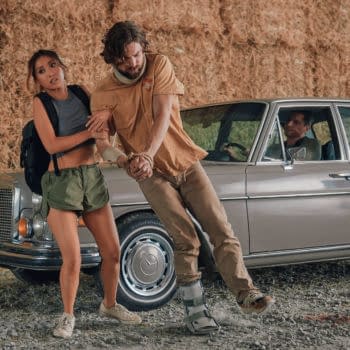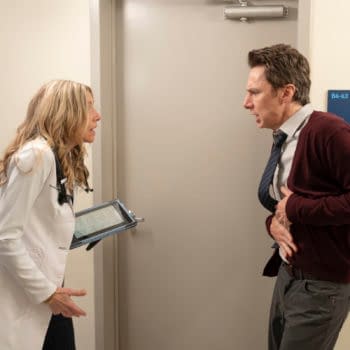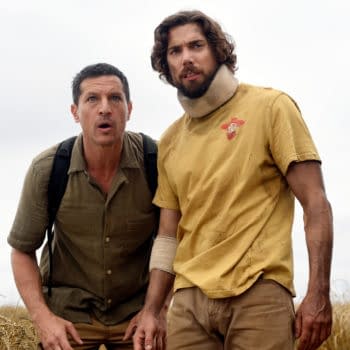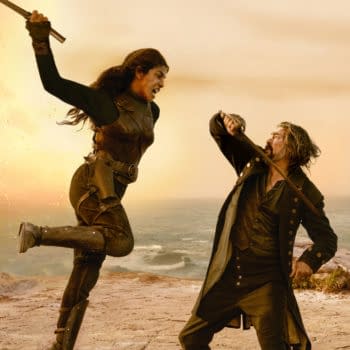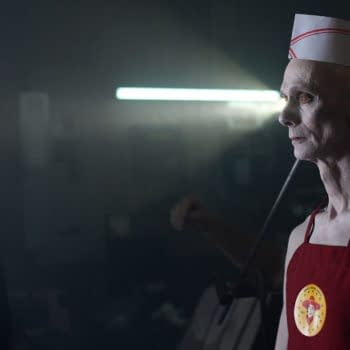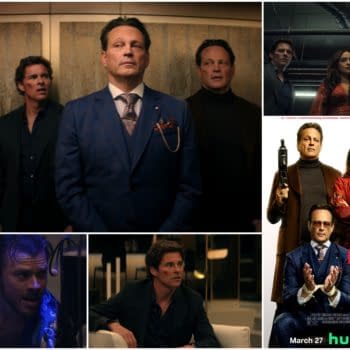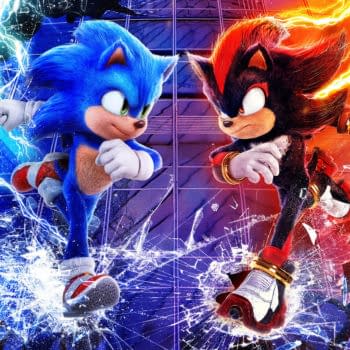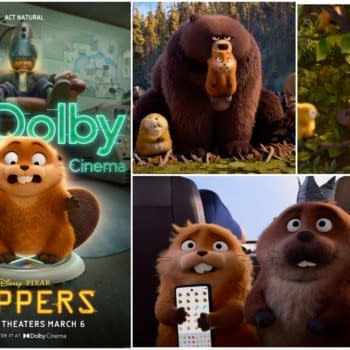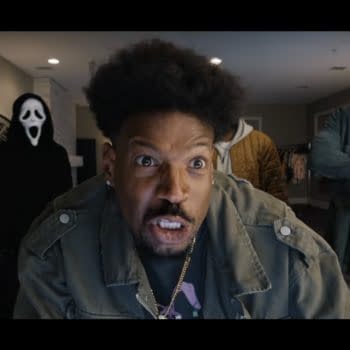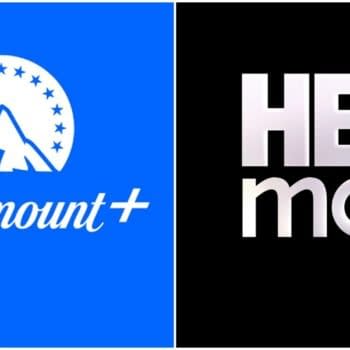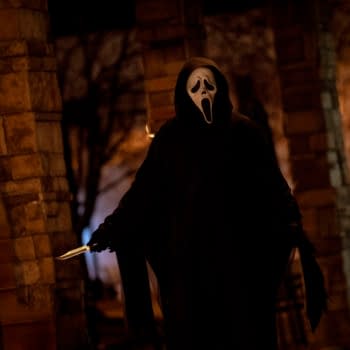Posted in: Exclusive, Horror, Interview, Movies | Tagged: Alarm Pictures, danielle harris, Dark Obsession, exclusive, horror, interview
Dark Obsession: Danielle Harris on Horror Film's Isolation Themes
Danielle Harris (Project Dorothy) spoke to Bleeding Cool about Alarm Pictures' horror thriller Dark Obsession and its isolation themes.
Article Summary
- Danielle Harris discusses her role in 'Dark Obsession' and its isolation theme.
- The film explores the haunting aftermath of sudden loss and personal trauma.
- Harris reflects on the impact of Covid on indie filmmaking and budgets.
- Future directions: Harris is open to more behind-the-camera work and comedy horror.
Danielle Harris considers herself fortunate to be still taking on new challenges as an actor to expand herself creatively should the right project come behind the camera to add to her already impressive over 100-title filmography in her nearly 40-year career. Her latest was one of two projects she worked on during the pandemic with writer-director George Henry Horton, finally seeing his feature films come to life in Project Dorothy and Alarm Pictures' Dark Obsession. The latter follows aspiring painter Anne (Blaine Morris), who is haunted by her husband's sudden—and unexplained—departure. Sinking deeper into her self-imposed isolation, Anne finds support in Maya (Mena Suvari), her closest confidant. While their friendship blossoms from tragedy, a shared disquiet takes root in Anne's tight-knit community when unsettling questions are raised about Maya. Harris spoke to Bleeding Cool about the film's isolation themes, how Covid affected indie films financially, and her future in front and behind the camera.
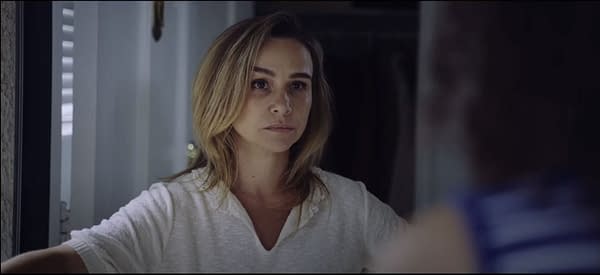
Dark Obsession: Danielle Harris on Women & Isolation
Bleeding Cool: Danielle, this is your second project with George [Henry Horton]. How did you get involved with 'Dark Obsession?'
Harris: I did 'Dark Obsession,' what used to be called 'Anne, with Love' before I did 'Project Dorothy.' It was one of those films that came my way. It was a script that came my agent's way and was sent to me. It said, "It's one day, tiny little part, but there's some interesting things and the filmmaker's interested and interesting with a female lead. It's written, produced, and starred." I gave it a read and thought there was something cool here. I like the simplicity of it, and during COVID-19, there is minimal interaction with anybody, and it gives a chance to get out and play.
How do you describe the atmosphere on set with your costars?
With George, we were playing with stuff because of the characters. It's got little to say, but there's so much to communicate without words. It was a full day of playing around with different things with her and interacting, and it's stuff that women don't talk about. If they take the time to look at it, there's an understanding and a knowingness between women behind their eyes. That was what needed to be expressed, which is a lot to portray; without big scenes, understanding, or knowing the characters, you don't have much time to explain what you're going through or what you've been through. Those are the actor's dreams, and Blaine [Morris] was excited to play and be a fan. I don't remember what they had shot before because they'd shot this over a long period. I'm not sure where our scene was in the process, but I had a great time. It was super fun and exciting to watch. It's a small crew, and I'm grateful to help make their movie happen.
Did you interact with your costars in your brief time filming?
During COVID-19, the rules were so strict about keeping people separated and wearing your masks. We weren't in the same room and separated. That was fine because we didn't need to be friends on screen. We talked as much as we could through our masks while still allowing [Blaine] to stay character and be in the place that she needed to be in what she needed to do.
With time to reflect on how productions were then during the height of the pandemic compared to now, do you have any thoughts about how the process is now compared to a few years ago?
It was crazy, and we were trying to figure it out. I remember it when I came back on 'The Conners.' We would have to test two times a day, and aside from wearing a mask over our face, we'd have a [face] shield and keep our distance. It was difficult, and people made up the rules as we went along. You're breaking the rules without knowing you're breaking the rules. There was a lot of confusion and frustration. I felt like that took a chunk of the budget from many of the films, making sure you had your COVID compliance officer and certain things you had to do getting testing every day. You also had movies that I had wanted to do. I did the film 'Natty Knocks,' and we had to push a little bit because we had to raise more money. We needed another $200,000 to have COVID tests, like things that were inaccessible to independent filmmakers. It hurt many people, aside from the big studios that would get shut down and productions that would get shut down for weeks at a time, such as big series and films and stuff like that. That ship has sailed; who knows what it'll be next? I didn't ever anticipate anything like that ever happening, but from what I've seen, everything's pretty much gone back to normal.
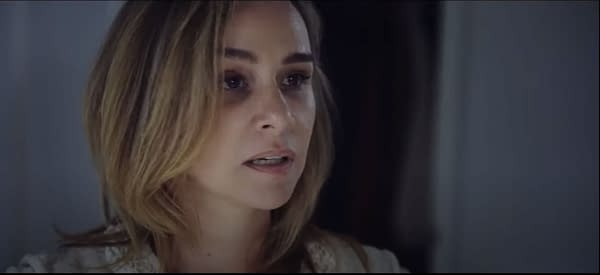
Did you do things outside your typical wheelhouse during the pandemic, taking roles you wouldn't normally do?
Getting out of the house and, being creative, and sustaining work during COVID was difficult. Depending on whether I was in a booth by myself for one scene, I would take things, not necessarily so close to someone. I only did one film where I had a lot of intimate close scenes, and it was only one actor in a house about COVID-19. The movie never came out, but not yet, anyway. I only did that because I knew the actor well. He was married to one of my best friends, so I knew he was abiding by the Covid rule going home. At that point, when we were working, we hadn't had vaccinations yet or anything. Everybody was dying at the height of it, so I didn't know I was immunocompromised. I have two young kids at home, and my mother lived with me then, too. It was tricky what I wanted, how I wanted to put myself at risk, and what I wanted to take on during that time. You must weigh the pros and the cons, but you must keep working, too. You've got a family, kids, insurance, and things that I still had to think about, like regular everyday things.
Back to 'Dark Obsession' with the commentary on the film. What was it that resonated with you about George's script?
It's something a lot of women understand: the isolation when you've had trauma in your life and, how that feels, and how difficult that is to discuss with your partner. Both of my children were conceived through [in-vitro fertilization]. We had infertility issues, struggles, miscarriages, and a lot of heavy stuff. I had gone through many of those feelings and was unable to talk about them. Women don't talk about this stuff even more so than men don't talk about their feelings. We're supposed to do it. We're supposed to like, "That's why we're here: to have babies. That's what we're made for." When you can't or want, it doesn't happen for you, or when you don't want them, it's taboo and difficult to discuss. Coming out of having had that experience, that was interesting to me.
Given the film's issues involved, does this feel timely?
Horror emulates what's happening in our world, ironically enough. It doesn't get recognized for it. I don't think [the timing] was anticipated. It was more about isolation, secrets that women hold, and feelings that aren't supposed to be expressed. That's what many people were going through during Covid, more so than what's happening within politics, with babies, births, women, and all that stuff.
Given your history in horror, was there a subgenre you're hoping to do in the future?
I like the comedic element, which I haven't done much of. 'Hatchet' [franchise] would be the closest I've come to comedy horror. Those '80s practical effects were fun and silly. That would be fun because it's lighter. It's not so intense. Even though 'Hatchet' had a lot of that character, it didn't have any of that. I want to do something fun. Scout [Taylor-] Compton and I are writing some of that stuff because she's feeling the same way. We're writing outlandish, big, and ridiculous fun films that we're ready to do.
Do you see yourself in more active behind-the-scenes type roles in your career?
I would love to. It depends on whether I want to invest that much time into something. It must be something special, knowing you're taking two years out of your life to work on that project as a director. If something like that comes my way, then I will sign on. I signed on to do a movie called 'Sequel' that Joe Dante is producing. He found the script for me to direct it, and we've had that on the shelf for a while now, hoping to find financing for that. That's something that I wanted to take on for a couple of years, but it must be something as special as that for me to step behind the camera.
Dark Obsession, which also stars Adriana Barraza, is available on digital and on-demand.






